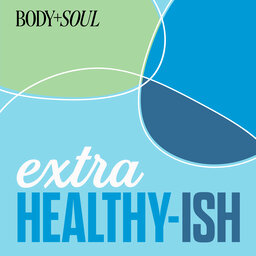Easy ways to regulate your nervous system
If you want to understand your nervous system a little better, then tune in as psychologist Anna Nikolaou discusses how our body responds to stress and the most important things to help balance it.
WANT MORE FROM ANNA?
Find out more about Anna at Macleod Wellness Centre here.
WANT MORE BODY + SOUL?
Online: Head to bodyandsoul.com.au for your daily digital dose of health and wellness.
On social: Via Instagram at @bodyandsoul_au or Facebook. Or, TikTok here. Got an idea for an episode? DM host Felicity Harley on Instagram @felicityharley.
In print: Each Sunday, grab Body+Soul inside The Sunday Telegraph (NSW), the Sunday Herald Sun (Victoria), The Sunday Mail (Queensland), Sunday Mail (SA) and Sunday Tasmanian (Tasmania).
In 1 playlist(s)
Extra Healthy-ish
Extra Healthy-ish is the big sister podcast to Healthy-ish. Here you'll get extra bits from your fav…Social links
Follow podcast
Recent clips

Summer series: Athlete Bonnie Hancock was to pushed her limits, her grit is inspiring
17:51

Summer series: Lorna Jane's life lessons are utterly inspiring
19:19

Summer series: In the jungle, naked for 21 days - Alexa Towersey’s mental strength is inspiring
19:33
 Extra Healthy-ish
Extra Healthy-ish